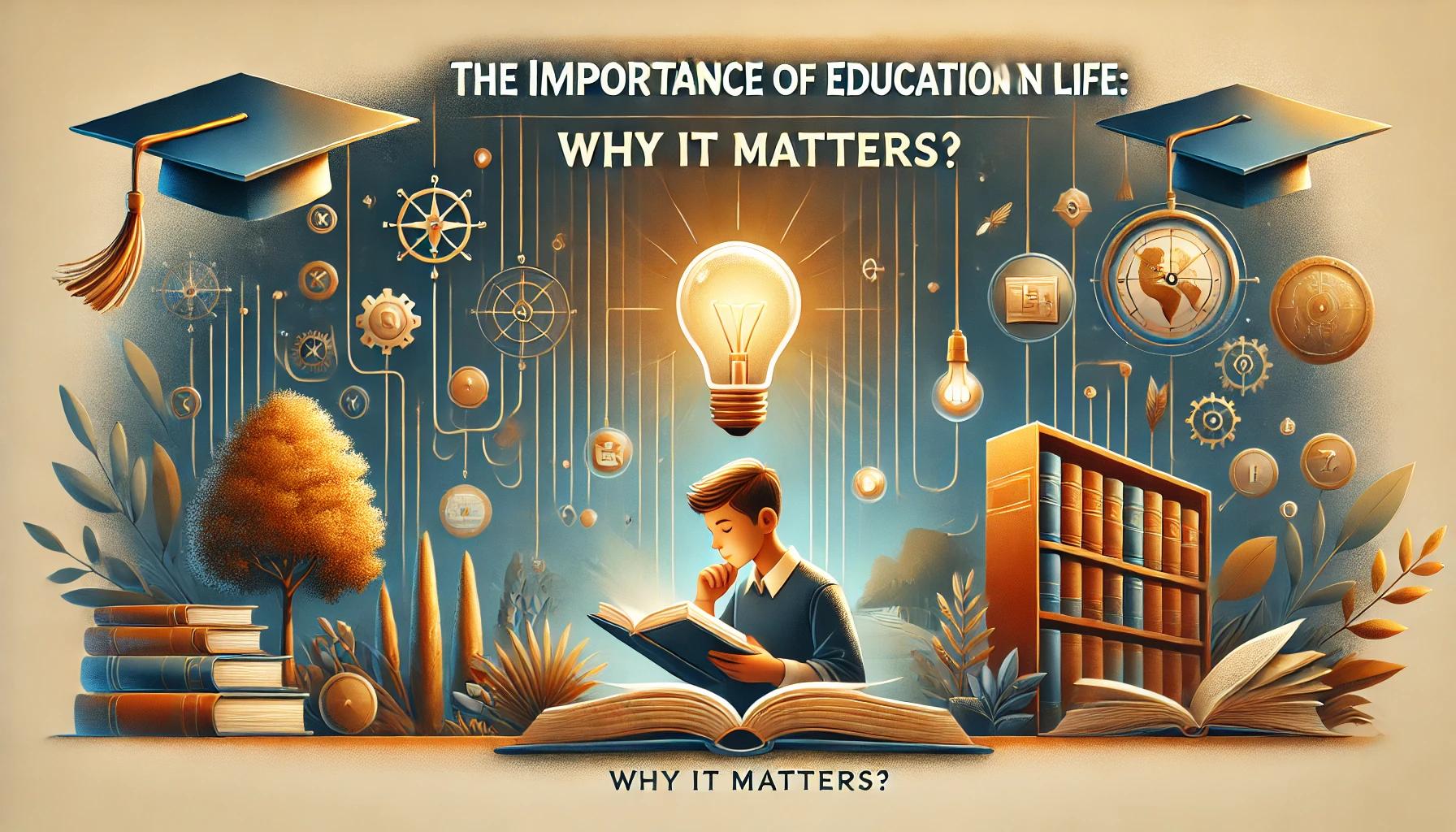
Education is a fundamental pillar of human society, shaping individuals and communities alike. It serves as the foundation for personal growth, social development, and economic prosperity. Education is not merely about acquiring academic knowledge; it plays a vital role in nurturing critical thinking, enhancing life skills, and fostering values that guide individuals through life’s challenges.
In this article, we will explore the significance of education, its impact on different aspects of life, and why it remains a crucial element for personal and societal progress.
1. Education as a Pathway to Knowledge and Skills
One of the primary benefits of education is the acquisition of knowledge and skills. From early childhood to higher education, learning institutions equip individuals with the essential tools to understand the world, solve problems, and develop innovative solutions.
Education provides expertise in various fields such as science, technology, engineering, arts, and humanities, allowing individuals to contribute meaningfully to society. It helps people adapt to technological advancements and stay updated with the evolving demands of the workforce.
2. Boosting Career Opportunities and Economic Growth
Education is a key driver of career opportunities and financial stability. A well-educated person has a higher likelihood of securing a stable job with a good income. Many professions require specific qualifications, and higher education opens doors to specialized fields such as medicine, engineering, law, and business.
Education is a key driver of career opportunities and financial stability. Share on XMoreover, educated individuals are more likely to engage in entrepreneurship, innovation, and economic development, which ultimately contributes to national progress. Countries with high literacy rates and strong educational systems tend to experience rapid economic growth and reduced poverty rates.
3. Enhancing Critical Thinking and Decision-Making
Education promotes analytical thinking, problem-solving abilities, and informed decision-making. It encourages individuals to question, explore, and seek rational solutions to problems.
A well-educated person is more likely to assess situations objectively, differentiate between right and wrong, and make sound decisions in both personal and professional life. Critical thinking skills also help individuals navigate through misinformation, develop logical reasoning, and contribute positively to discussions on important societal issues.
4. Fostering Personal Development and Confidence
Education nurtures self-confidence and personal development. It empowers individuals to set goals, overcome obstacles, and strive for success. An educated person is more likely to have a sense of self-worth and motivation to improve their circumstances.
Education nurtures self-confidence and personal development. Share on XThe ability to communicate effectively, present ideas, and engage with diverse perspectives enhances social interactions and builds stronger relationships. Additionally, education instills ethical values, responsibility, and a sense of purpose in life.
5. Promoting Social Equality and Reducing Poverty
Education plays a crucial role in promoting social equality by providing opportunities for people from all backgrounds. It bridges the gap between different social classes, ensuring that individuals have equal access to opportunities regardless of their socioeconomic status.
By investing in education, societies can break the cycle of poverty, as educated individuals are more likely to secure stable employment and uplift their families. Educated women, in particular, contribute significantly to community development by promoting health, hygiene, and financial independence.
6. Encouraging Civic Participation and Good Governance
An educated population is essential for the smooth functioning of democracy and governance. Education cultivates awareness about rights, duties, and responsibilities, encouraging citizens to actively participate in civic affairs.
Literate individuals are more likely to vote, engage in discussions on policies, and advocate for social justice. Education fosters tolerance, understanding, and cooperation among people, leading to a harmonious and progressive society.
7. Advancing Scientific and Technological Innovations
Scientific discoveries and technological advancements are driven by education and research. Education fuels curiosity, creativity, and innovation, leading to groundbreaking inventions that improve the quality of life.
Countries that prioritize education in science and technology are at the forefront of medical breakthroughs, space exploration, artificial intelligence, and sustainable development. Educated minds contribute to solving global challenges, including climate change, healthcare, and energy efficiency.
8. Improving Health and Well-being
Education has a direct impact on health and well-being. Educated individuals are more aware of health-related issues, hygiene practices, and the importance of nutrition. They are more likely to adopt a healthy lifestyle, make informed healthcare decisions, and contribute to public health initiatives.
Education also helps in spreading awareness about diseases, vaccinations, mental health, and preventive care, leading to an overall improvement in community health.
9. Strengthening Family and Community Bonds
Education fosters strong family and community relationships by promoting understanding, empathy, and effective communication. Educated parents are more likely to provide a nurturing environment for their children, emphasizing the importance of learning and development.
A well-educated community supports social cohesion, reduces crime rates, and promotes peace and stability. When people have access to education, they are better equipped to resolve conflicts and contribute positively to society.
10. Lifelong Learning and Adaptability
In a fast-changing world, lifelong learning is crucial for personal and professional growth. Education does not stop after formal schooling; it continues through self-learning, skill development, and adapting to new challenges.
Individuals who embrace continuous learning remain competitive in their careers and stay relevant in dynamic industries. Lifelong education fosters resilience, adaptability, and the ability to embrace change.
Conclusion
Education is the cornerstone of personal and societal advancement. It provides individuals with the knowledge, skills, and confidence needed to lead fulfilling lives and contribute meaningfully to their communities. Education empowers people to make informed decisions, promotes social equality, enhances economic growth, and drives scientific progress.
As societies continue to evolve, the importance of education remains unparalleled in shaping a better future for individuals and nations alike. Investing in education is investing in the prosperity and well-being of present and future generations.